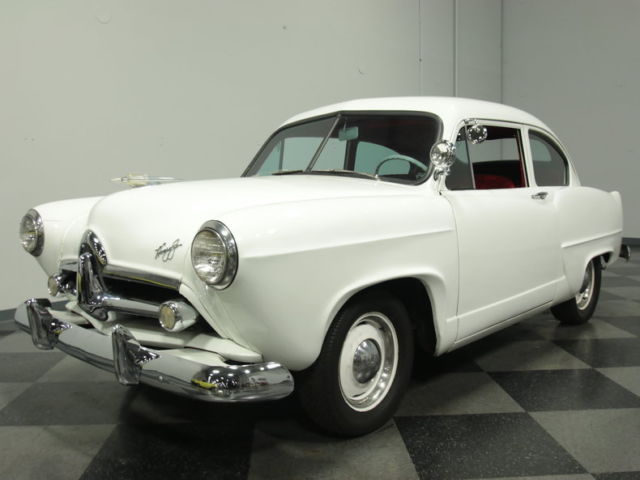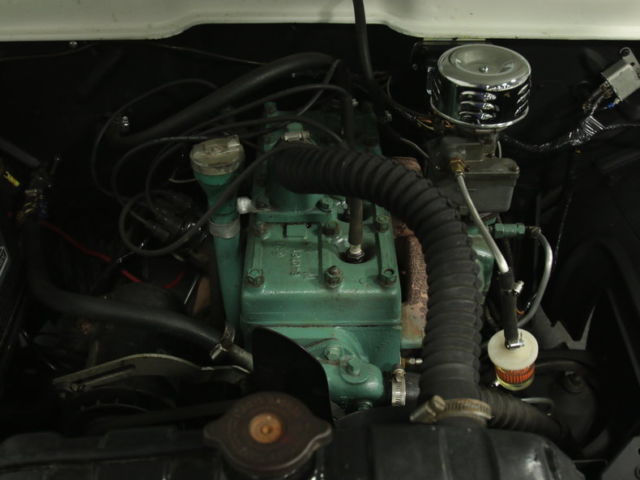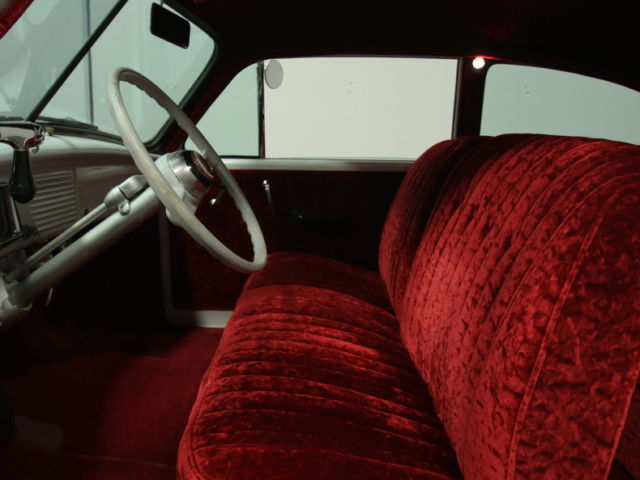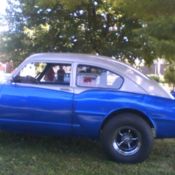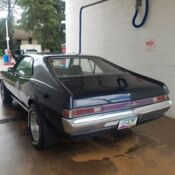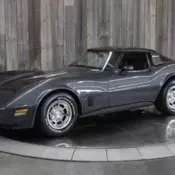|
The Henry J is an interesting little piece of American automotive history. Built by the Kaiser-Fraser company as a low-cost alternative to the Big Three, it produced a number of innovative features all designed to pare the car down to its essence. Sales were tepid, and combined with the car's low price, finding a complete, unmodified example like this 1951 Henry J Standard model is quite extraordinary indeed.The Henry J (which was named after the company's chairman, Henry J. Kaiser, by the way) was built to be basic, but that doesn't mean it can't be stylish. The entire car, built as it was to be economical and easy to build, was designed to have the fewest number of pieces and the result was a trim, sporty fastback shape that has aged well. Wearing nondescript white paint that was applied 30 years ago, this one looks exactly the way it might have on Main Street circa 1958, easily tooling around town where its trim size and great maneuverability were a big asset. It hasn't been driven much since it was restored, but that was a long time ago so there's a bit of shelf wear but nothing beyond a few touch-ups. Kaiser stylists did work wonders with the limited budget, as it shows wonderful details like the quarter panel stampings around the rear fenders and the neat quarter panel line that proves fins were not just for the big cars. The sporty fastback profile looks quick and sporty and the chrome remains in good shape, offering a jet-age style that belies the car's reasonable price.OK, we'll admit the interior isn't what Henry Kaiser had in mind, but it's well done and neatly finished, making for a great place to drive. The red fabric upholstery is flashy, but the theme continues throughout, with matching door panels and red carpets which all work quite well with the white paint. The dashboard is pre-war simple with a gauge cluster that will be familiar to Kaiser fans, and there are aftermarket oil pressure and temperature gauges under the dash. The steering wheel and column-mounted shifter offer light control efforts and a splash of color in the horn button, which sports a stylized "K" emblem. The back seat is spacious enough for two, although the sporty roofline cuts into headroom a bit, but that's the price of fashion, then and today. Focusing on value, this one has no options, not even an AM radio, but again, that's all part of the Henry J's charm. There is, however, a spacious back seat that folds down to give access to the massive cargo bay behind it.The Henry J used the same 134 cubic inch inline-four that powered Jeeps of the period, and despite its modest specifications, it's energetic around town and will happily cruise at 50 MPH. In fact, this engine might make the Henry J a smart hobby car today, as it often pulled down as much as 35 MPG, and there's no reason it can't do it today. Rebuilt 200 miles ago, the engine bay is detailed, with corporate green paint on the engine, an accessory chrome air cleaner, and the original generator, which still cranks out 6 volts. The ratios in the 3-speed transmission are well chosen and the suspension is conventional. It's clean underneath and features a new exhaust system with glasspack-style muffler that splits into dual tailpipes, a fresh gas tank, and painted steel wheels with affordable blackwall radials to keep the authentic look.Thrifty fun still works today, and this Henry J feels like a more expensive car than it is. Call today!
|
 Home
Home Contact us
Contact us NEWEST CARS
NEWEST CARS SELL YOUR CAR
SELL YOUR CAR FAQ
FAQ